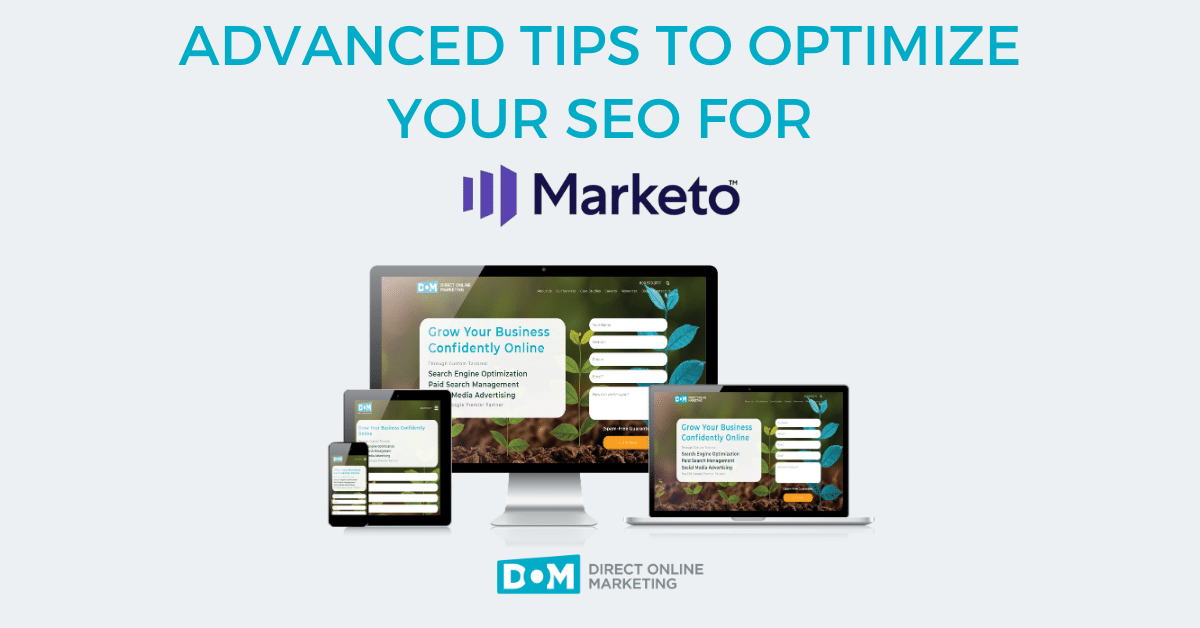
The world grows more interconnected day by day. It is getting easier and easier for businesses to reach customers across the city and across the globe. International marketing is, therefore, a potent opportunity for your business. You stand to gain new customers and new market share if you can communicate your unique value proposition to people all around the world.
Selling into international markets is exciting and challenging. There are local rules and regulations to comply with, and customs and etiquette to understand. We’re here to help. Let the international marketing experts at Direct Online Marketing point you in the right direction as you embark on navigating overseas commerce.
Table of Contents
- Stay Alert to Cultural Differences When Doing International Marketing
- Build Links to Bolster International Marketing
- Localize Your Brand When Marketing Internationally
- Consider Establishing a ccTLD for International Marketing
- Observe Advertising and Disclosure Regulations When Doing International Marketing
- Use Hreflang Tags in International Marketing
- Connect to Government Resources for International Marketing
- Comply with Data Privacy Rules When Marketing Internationally
- Test International Marketing Waters with Keyword Research
- Experience the DOM Difference for International Marketing
- Key Takeaways
Stay Alert to Cultural Differences When Doing International Marketing
Navigating international markets requires a deep understanding of cultural diversity. Each country likely has its own unique set of values, behaviors, and expectations. For instance, colors are associated with different things in different cultures. Red signifies good luck in China. In most Western countries, on the other hand, red signifies danger or stop. Marketing strategies must resonate culturally, lest they risk confusing or, worse, offending potential customers.
Build Links to Bolster International Marketing
Getting links from reputable sites back to your site improves your online reputation. In search engine jargon, this is called domain authority. The more connections that exist on the internet from high-quality sites back to your site, the more that search engines will rank your content highly. This is especially important when you are trying to break into a new market in another country. Attaining backlinks that build domain authority is challenging; it is also one of the most potent signals that search engines recognize.
Before backlinks become even a glint in your eye, though, you should populate your website with content that demonstrates your expertise, expertise that’s so definitive it would be recognized by anyone anywhere. This means crafting pages on your major offerings, blogging regularly on industry developments, and collecting customer feedback in the form of reviews and testimonials. Your aim should be to create a multifaceted portfolio of what you do and why you do it well.
Once you’ve produced a meaty set of product pages, blogs, and reviews, you’re ready to start thinking about backlinks. Now along the way to doing this, you may have established yourself as such a name in the field that other sites are already linking to you. Perhaps your blog on repairing industrial automation parts has been cited by another player in the field. This is uncommon, but it also shows what true authority is. It’s when people naturally point to you because you stand out in your field. More commonly, though, you will need to proactively reach out to other websites to ask them to link to your site.

“Building high-quality links is of the utmost importance for business success online today. Link building for international marketing, specifically, presents unique challenges in the form of cultural differences and language barriers. You need to reach out for backlinks in a focused manner to get the most out of your time and energy. Start by using a link-building analytics tool to identify webpages that cover topics similar to what you cover. Then you need to craft an outreach email with an enticing call-to-action. Think about what this site owner will get in return for linking to you. Perhaps you can collaborate by writing guest posts for each other’s blogs. This kind of negotiation is the core challenge of soliciting backlinks.”
Jason Ohsie, Digital Marketing (SEO) Department Manager, Direct Online Marketing
Localize Your Brand When Marketing Internationally
Making your brand accessible to foreign markets means at the very least translating your messaging. Localizing your brand should further involve adapting the tone and content of that messaging to align with local norms and consumer behaviors. For example, McDonald’s offers menu items tailored to local tastes such as the McSpicy Paneer in India and the Teriyaki McBurger in Japan. This strategy not only enhances relevance but also builds brand affinity within diverse markets.
Consider Establishing a ccTLD for International Marketing
Creating a website with a country code top-level domain (ccTLD) can help you target people in that location more efficiently. For example, if your business is based in Mexico and you are trying to reach people in Greece, it might be worth the effort to create a website with an address that ends in the country code for Greece: www.company-name.gr
The two-letter abbreviation for Greece at the end of the URL signals to search engines that the website is designed to be relevant to people in Greece. Setting up a ccTLD can give your business a boost in search engine results because your content will probably rank better than content on sites without the Greek country code.
Learn more about geotargeting for international marketing with Google Search Console from the experts at DOM.
Observe Advertising and Disclosure Regulations When Doing International Marketing
Advertisers in the United States must comply with rules laid down by the Federal Trade Commission (FTC). The FTC polices dozens of marketing activities, such as influencer marketing, endorsements, native ad placement, and testimonials. Failure to conform to guidance from the FTC can result in fines and lawsuits.
Make sure you research the regulations in every country you are attempting to do business with. It’s crucial to make a good faith effort to comply with local standards about advertising and disclosure. Doing good business also means being a good citizen (of the world).
Use Hreflang Tags in International Marketing
You can use an hreflang tag to indicate to search engines that the page is written in a certain language—and is therefore especially relevant to speakers of said language. So, say, your website is primarily written in English but you have translated some pages into French because you are hoping to sell to people in Paris. In this case, you should formulate the URL of the French page like this: www.company-product-page.com/fr/
The two-letter language code (or hreflang) alerts search engines that the content of the page is written in French. The page will then be more likely to be served to people whose internet browser is set to French.
Connect to Government Resources for International Marketing
Everybody wants their country to have a strong economy. To that end, there are likely resources in place in your region to help businesses that are trying to grow into new markets.
In the United States, the International Trade Administration (nested within the U.S. Department of Commerce) is a government organization that helps exporters. They help U.S.-based companies sell their goods and services overseas. Connecting with the International Trade Administration helps you identify free or low-cost assets like small business associations, state development agencies, the Export-Import Bank, and the local District Export Council.
Get the international perspective of DOM President Justin Seibert in his blog How Online Marketing Helps Global Exporters Grow.
Comply with Data Privacy Rules When Marketing Internationally
You’ve likely spent years building your reputation as a business. Keep that reputation strong by staying in compliance with any data privacy laws in new regions that you are marketing to. Just one mistake, or even the appearance of a mistake, can jeopardize all the goodwill you’ve built up around your name.
Europe takes a strong stance on data privacy. The General Data Protection Regulation (GDPR) defines how user data may be used within the European Union and the European Economic Area. Complying with local data rules, like GDPR, means being explicit and meticulous in how you capture data about people who interact with your business. Broadly speaking, companies must clearly inform users of how their data will be used and get users’ consent to do so. Defying GDPR can lead to company-wide data audits and even fines of millions of Euros.
Test International Marketing Waters with Keyword Research
Gauge the knowledge and interest about a product or service that you provide by conducting keyword research by country.
There’s an old joke about two shoe salespeople who are sent to scout opportunities in a new land. The first salesperson looks around and writes back to the home office, “Nobody wears shoes here. There’s no market for us.” The other salesperson writes to the home office, “Nobody wears shoes here. The opportunities are endless!”
You can get a sense for what people are searching for online in another country with tools like Google Ads Keyword Planner and Semrush. These tools provide an estimate of how many ads are being bought and how much organic traffic there is for a given keyword. Even better, these tools break down that data by country.
If you discover a lot of organic traffic and paid ads for a given keyword, then you know there’s already an established market for that keyword. This also means you’ve already got competition. On the other hand, if there isn’t much traffic or ads, you may have the chance to corner the market.
Experience the DOM Difference for International Marketing
Thinking of branching out to a new country? Try our international digital marketing services for entering new markets.
At DOM, we help our partners sell into foreign markets with strategic planning, account management, website optimization, native translation, keyword & competitive research, international ad creation & testing, country testing & optimization, and analytics & reporting.
We’ve helped clients sell into over 150 countries.
Get in touch for a no-obligation discussion about international marketing opportunities.
Key Takeaways
- International marketing offers significant opportunities to reach new customers and gain market share globally.
- Understanding cultural differences and localizing your brand are crucial for successful international marketing.
- Building high-quality backlinks enhances your online reputation and improves search engine rankings.
- Complying with local regulations and data privacy laws is essential to maintaining your business’s reputation and avoiding legal issues.
- Conducting keyword research by country helps identify potential market opportunities and assess competition in international markets.


